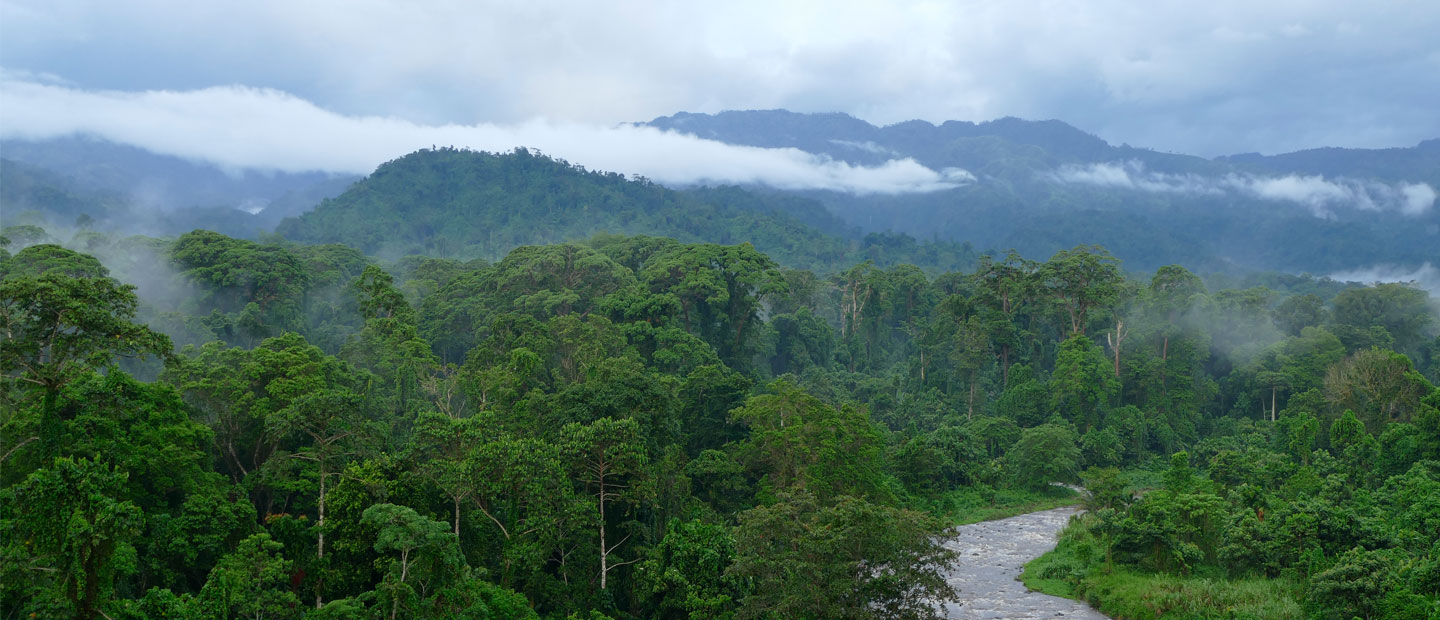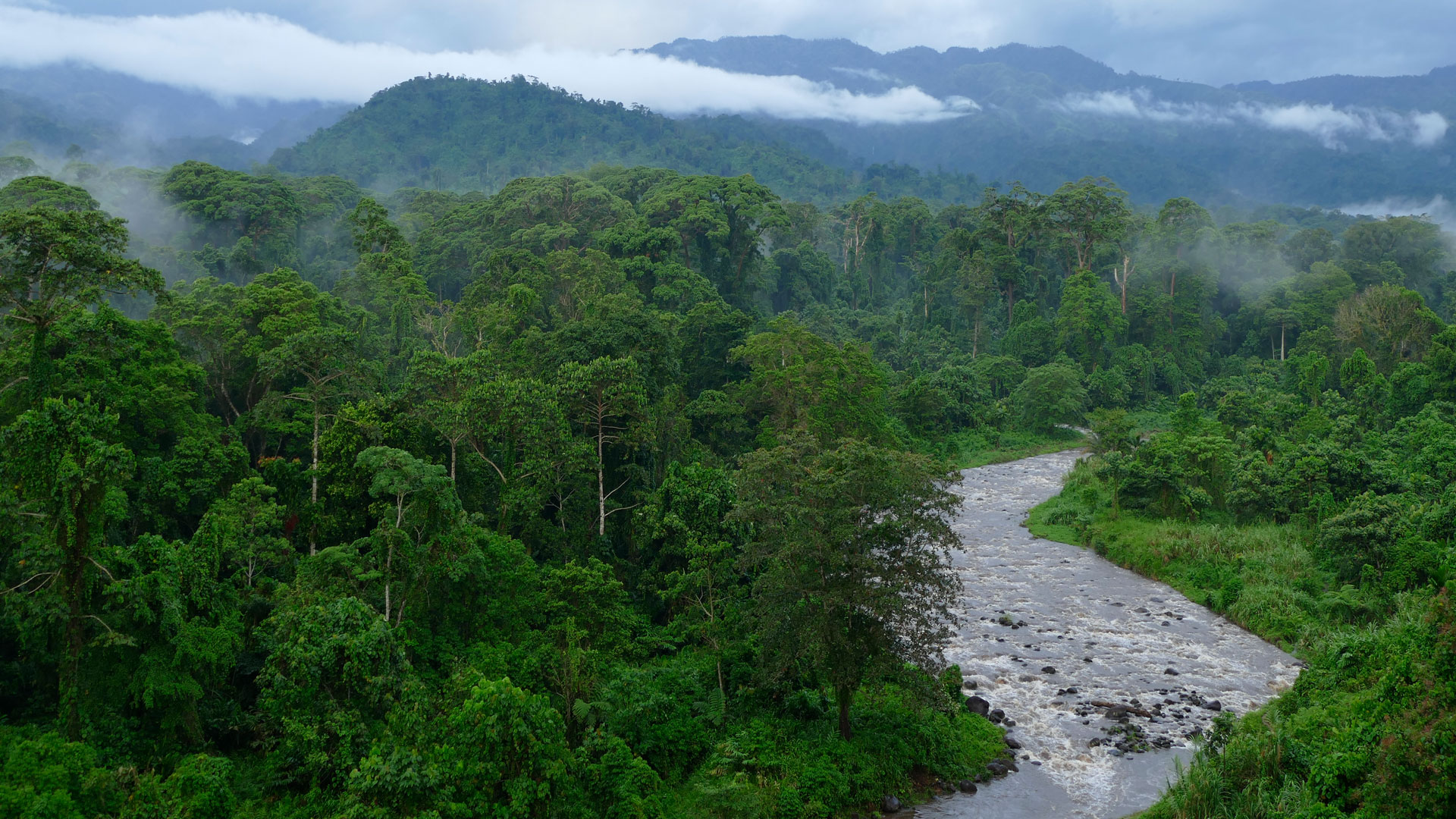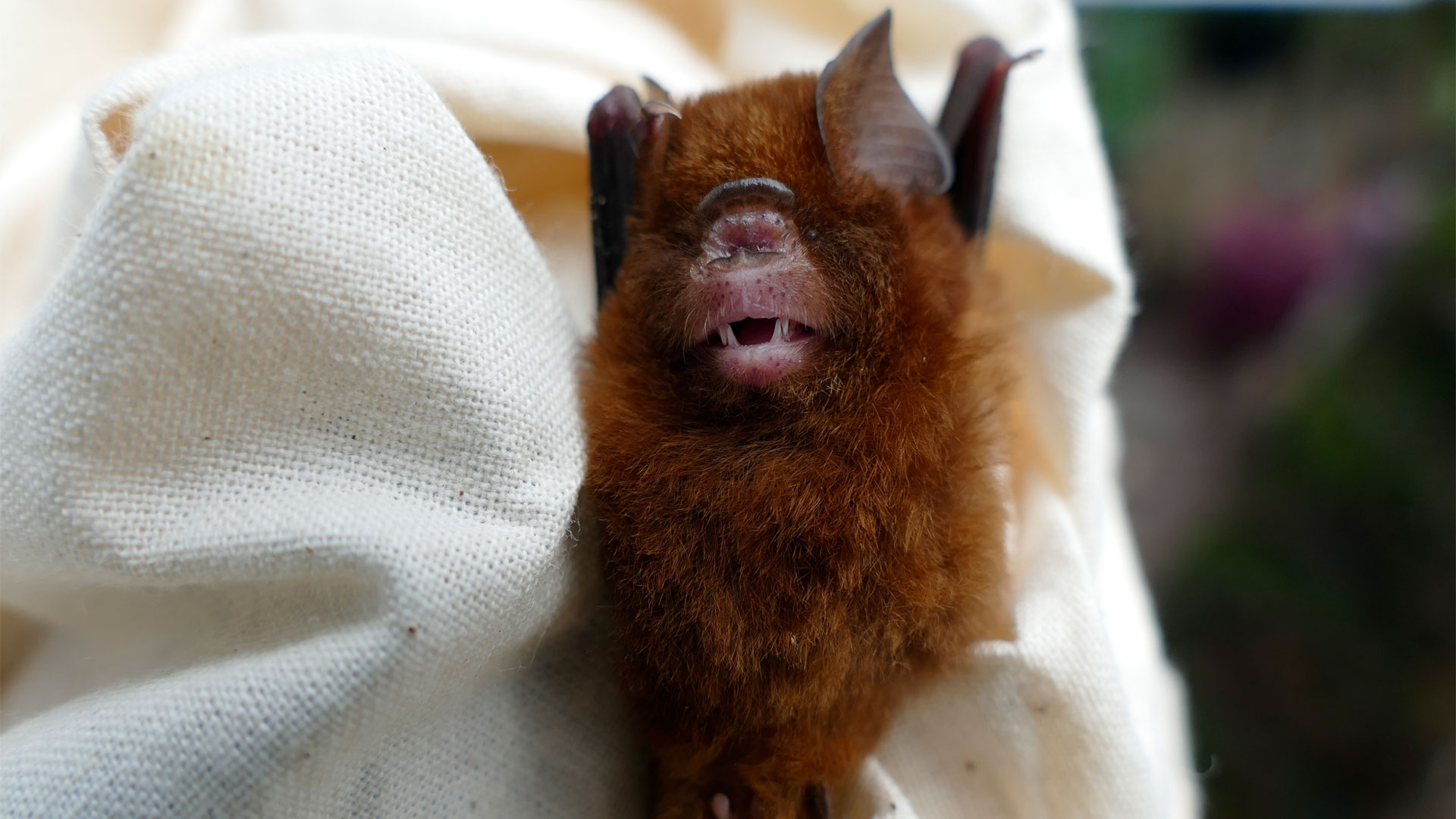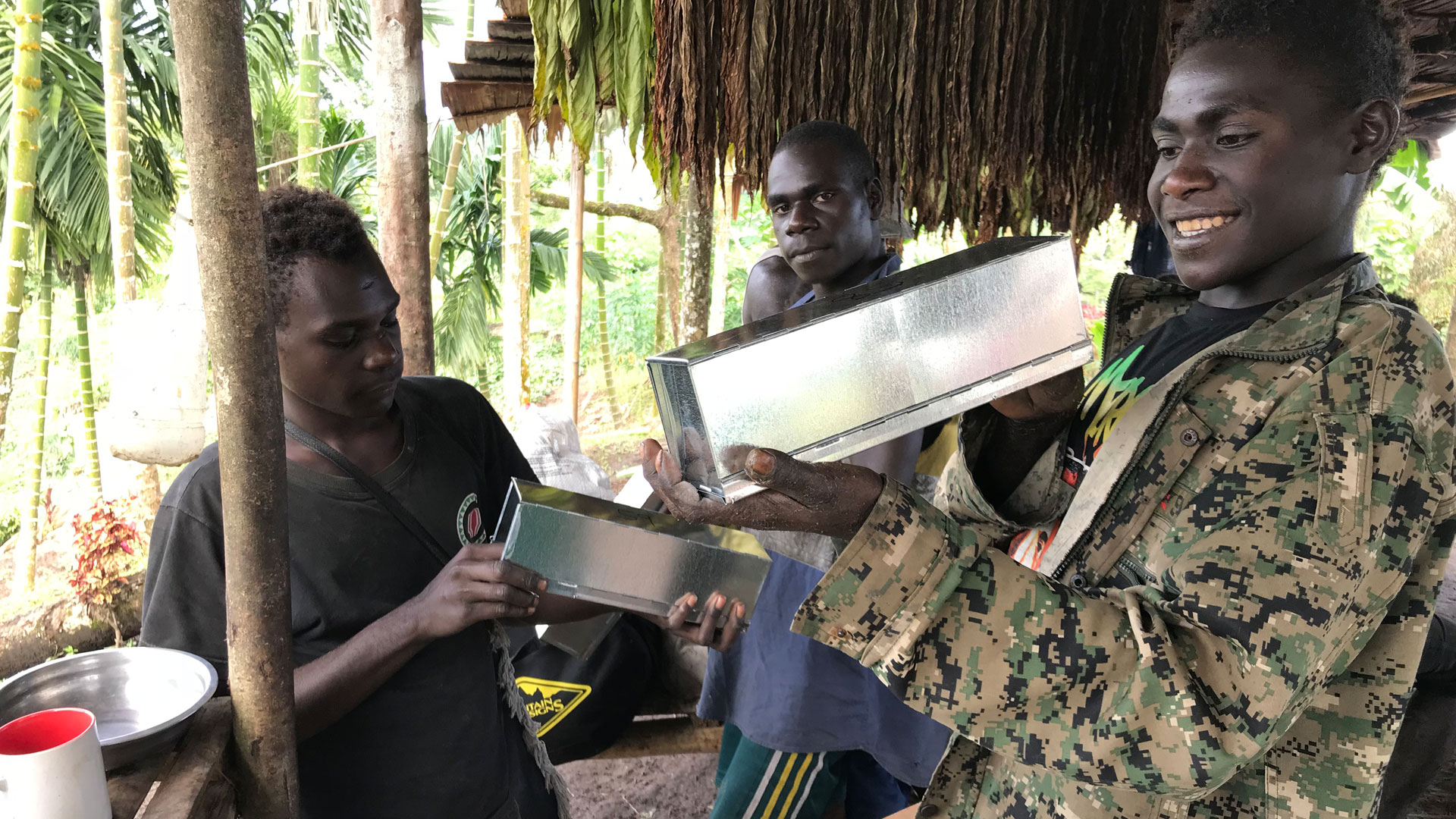To collect baseline data the team set up an elevational transect from lowland at 100 metres elevation, to montane forest at 2000 metres above sea level, to survey all mammals and small terrestrial animals that occupied this space. Small mammal traps, mist nets, camera traps, and spotlighting were used to sample the fauna along the elevational transects. Data was collected on species localities and numbers, customary land boundaries, apparent threats, traditional ecological knowledge, and long-term species management. Camera traps also helped provide images to assist with data collection.
Locals are given the tools to continue this kind of work, learning about the techniques and equipment used to carry out this scientific research, and 40 field assistants were engaged to help carry out trapping, setting up camp, providing local foods, and cutting tracks. Two primary schools and five community groups were met with during the project – community engagement and education is generally a really important part of a small grant. Giving these communities the knowledge and skills to continue important work, and raise awareness and interest on conservation issues is best way to ensure the project’s success into the future.
If you, or someone you know has a small conservation focused project that we could support, ask them to look at our Small Grants Programme application criteria.





